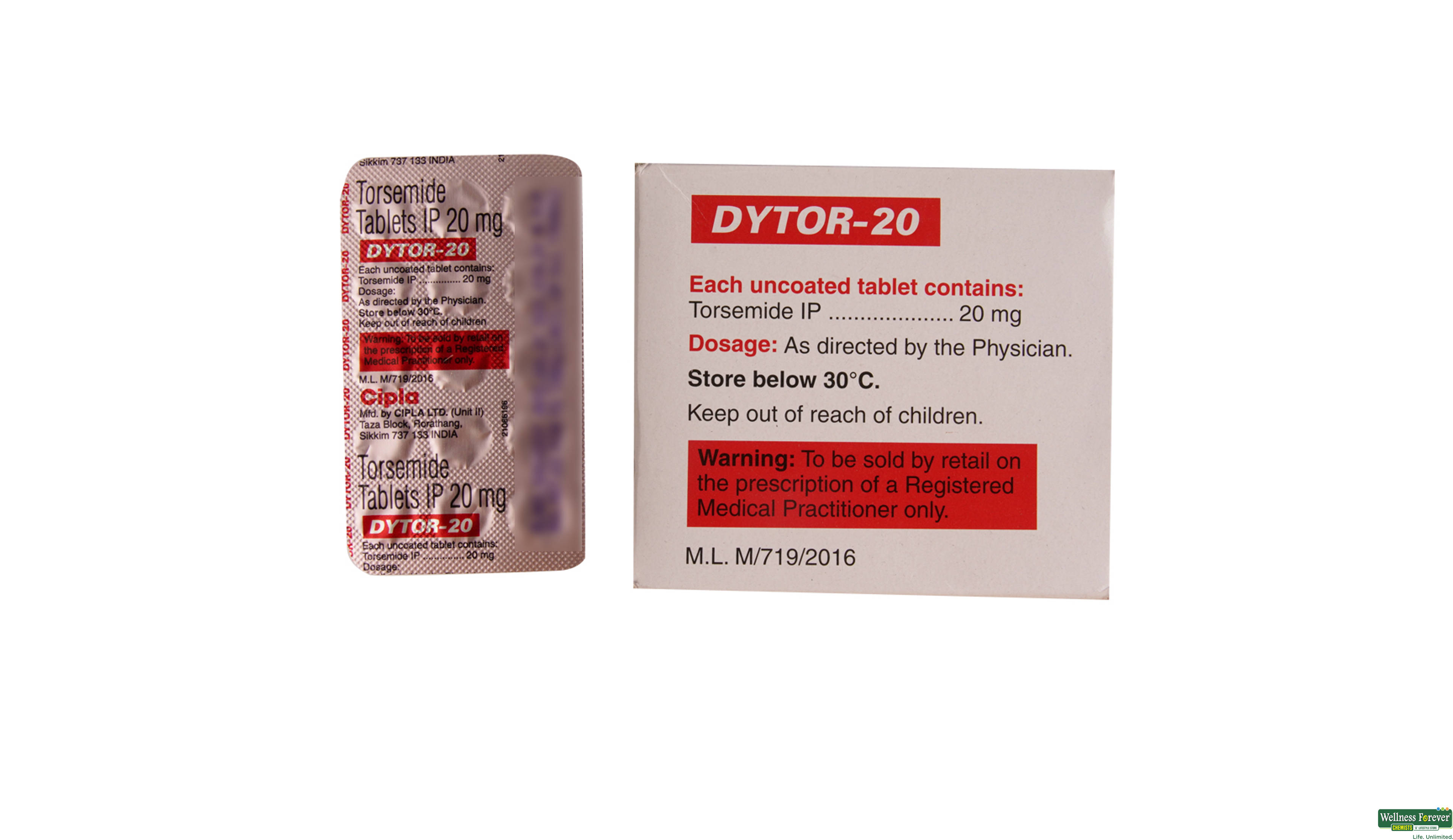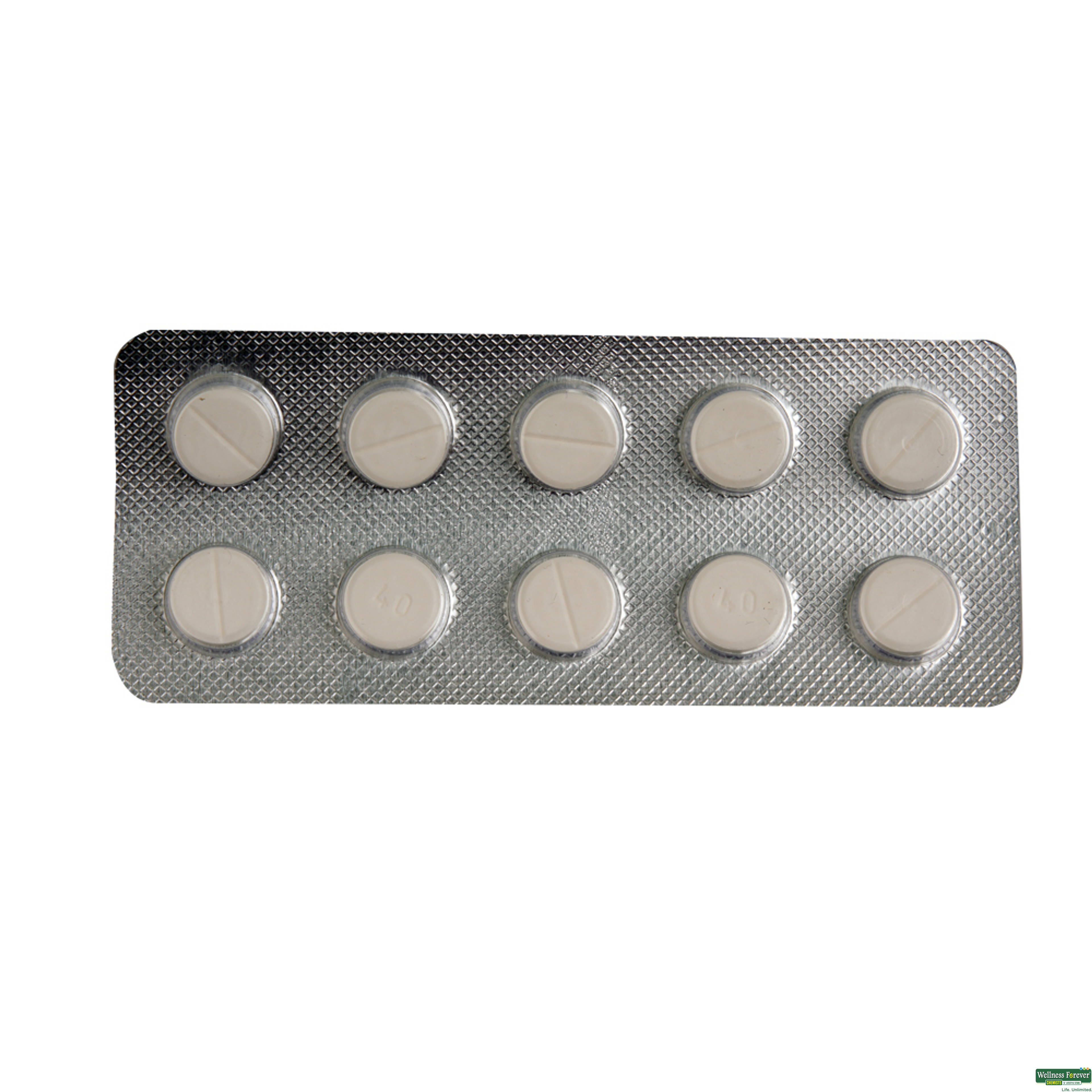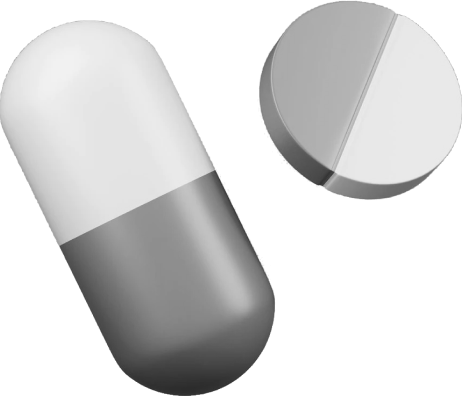
5% Off

5% Off
Dytor 20mg 15 Tablets
marketed by CIPLA LTD (VITALIS CARDIAC FRANCHISE)
• 15TAB
Prescription Required
₹211.94
M.R.P.: ₹223.09
5% Off
Inclusive of all taxes
Choose pack size
Product description
Dytor tablet is a diuretic. Take this medication as prescribed by your doctor. It works by removing the extra water and certain electrolytes from the body. Advise the patient to take this medicine 4 hours before bed at night to avoid frequent urination. You must follow caution as excess consumption leads to serious adverse effects. Reducing stress, restricting salt intake, and stopping smoking
Hypersensitivity to dytor tablet or any component of the formulation Anuria Hepatic coma.
Babies: It does not apply to babies.
Lactating mothers: It is probably safe to use during breastfeeding.
Pregnancy: It is generally considered safe to use during pregnancy.
Driving: It decreases alertness, affects your vision, or makes you feel sleepy and dizzy.
Alcohol: It is not known whether it is safe to consume alcohol.
Please consult your doctor.
Liver: Dytor tablets should be used in caution with patients suffering from liver disease.
You may require a dose adjustment and regular monitoring of liver function.
Seek doctor advice before using this medication.
Kidney: It is probably safe to use..
Headache Dizziness Dehydration Constipation Decreased blood pressure Upset stomach.
Dytor tablet is an antidiuretic agent. It works by removing extra water and electrolytes from the body by frequent urination..
If you miss a dose, take it as soon as possible.
If it is near the time of the next dose, then skip the missed dose.
Take the prescribed dose on your regular time daily.
Don't double the dose to catch up with the missed dose..
• To avoid getting up at night to urinate, ask the patient to take this medicine in the morning with breakfast. • Before taking a dytor tablet, monitor your blood pressure. • Consult your physician if you experience dizziness, tiredness, or muscle weakness that does not go away. • See that the food you take is rich in potassium. As it may decrease your potassium levels and lead to dehydration. • Monitor kidney functioning regularly by blood tests done..
• Dytor + Lithium: Concurrent use may decrease the effects of lithium • Dytor + Allopurinol: Concurrent use may increase the effects of allopurinol • Dytor + Amifostine: Concurrent use may increase the effects of amifostine • Dytor + Amikacin: Concurrent use may increase the effects of amikacin • Dytor + Aminoglycosides: Concurrent use may increase the effects of aminoglycosides • Dytor + Bilastine: Concurrent use may increase the effects of bilastine • Dytor + Bromperidol: Concurrent use may increase the effects of bromperidol • Dytor + Amphetamine: Concurrent use may decrease the effects of dytor • Dytor + Brigatinib: Concurrent use may decrease the effects of dytor • Dytor + Phenytoin: Concurrent use may decrease the effects of dytor • Dytor + Opioid agonists: Concurrent use may decrease the effects of dytor • Dytor + Alfuzosin: Concurrent use may increase the effects of dytor • Dytor + Benperidol: Concurrent use may increase the effects of dytor.
100% Authentic
Easy Return
Frequently bought together
Trending
FAQ
Ans: Yes, dytor tablets may raise blood sugar levels, causing hyperglycemia. Hence, it is important to keep track of your blood glucose levels during treatment with a dytor tablet.
2. What are the side effects of dytor tablets?
Ans: The common side effects of dytor tablets include headache, dizziness, dehydration, constipation, decreased blood pressure, and stomach upset. The severe side effects of dytor tablets include dehydration and electrolyte imbalance, rapid or excessive weight loss, vomiting blood, chest pain, difficulty breathing or swallowing, blisters or peeling skin, hives, rash, and itching. Consult your doctor immediately if you notice any such symptoms.
3. Does dytor tablet increase creatinine?
Ans: Yes, dytor tablets may cause a mild increase in creatinine values depending on the dose you are taking. These increased creatinine levels may increase slightly more when this medicine is used for the long term. However, with the discontinuation of the treatment, these levels return to their base value.
4. Does dytor tablet cause loss of potassium?
Ans: Dytor tablet may not cause direct potassium loss. But in some cases, the user may cause excessive loss of water which, may lead to dehydration. As a result, it may cause a loss of potassium, sodium, calcium, and magnesium.












